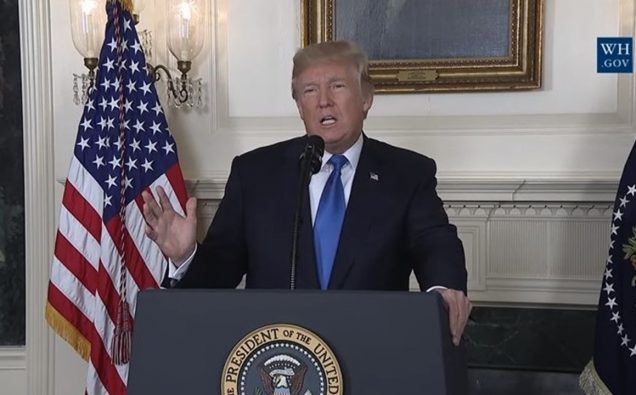
President Trump has said he remains committed to mediating between India and Pakistan on the disputed Kashmir region, where people have been throttled under strict restrictions since New Delhi ended its autonomous status in August last year.
Trump, who first offered such role during a meeting with Pakistani Prime Minister Imran Khan in July 2019, reiterated his stance at a joint appearance with Indian Prime Minister Narendra Modi in capital New Delhi.
While extending the offer, Trump cited a close relationship he has developed with prime ministers of both countries.
“We talked a lot about it at length today. No question it is a problem. They are working on it. I said I will do whatever I can do to help because my relationship with both gentlemen (prime ministers Khan and Modi) is so good. Anything I can do to mediate, I would do,” he said.
He was speaking at a Press Conference while taking a question about the challenge of terrorism in the region.
“They (Pakistan) are working on Kashmir. Kashmir has been a thorn in lots of people’s sides for a long time. There are two sides to every story. We discussed terrorism at length today,” he added.
At the same time, Trump also appeared to suggest a different interpretation of his offer when a journalists pointed out that India had rejected third party mediation.
“I didn’t say anything about that. Kashmir obviously is a big problem between India and Pakistan, they are going to work out their problem. They have been doing it for a long time.”
Modi’s government has been criticized roundly by human rights organizations for imposing restrictions on basic freedoms like freedom of movement and expression in Kashmir.
Yet another excellent meeting and talks with my friend @realDonaldTrump.
Relations between India and USA are not merely ties between two governments. Ours is a friendship that is people-driven and people centric.
Our nations are cooperating extensively, which is a great sign. pic.twitter.com/VPA8jdhAtI
— Narendra Modi (@narendramodi) February 25, 2020
During Trump’s visit – which has been showcased as an opportunity to strengthen economic and defense ties between the two countries – anti-Muslim violence spike in capital New Delhi as emboldened extremists allied to Hindutva ideology of Modi’s BJP party, perpetrated attacks on Muslims.
There have been widespread demonstrations by Indian civil society organziations against Citizenship Amendment Act and a national registrar as both moves are seen as discriminatory toward Muslims.
Trump declined to comment publicly on India’s new citizenship law.
“I don’t want to discuss that. I want to leave that to India,” he said.
However, the U.S. presidenet, who has also faced criticism at home for his immigration policies, said he privately had raised the issue of religious freedom with Modi.
“Modi was incredible on the subject” and that he “wants people to have religious freedom.”












